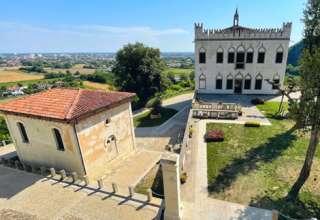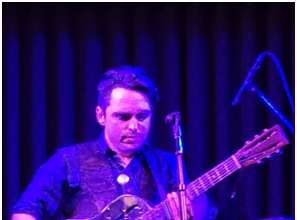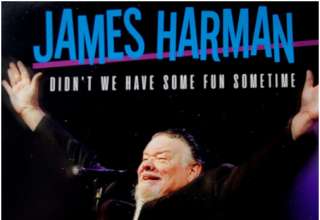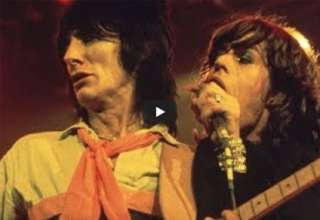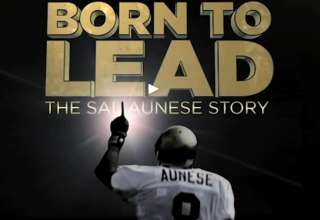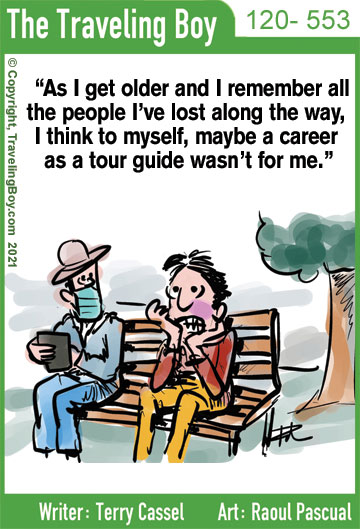By T.E. Mattox
When you grow up in a family where your father is known as Lil’ Howlin’ Wolf, the chances are pretty good that you may end up as a bluesman. If you come of age on Chicago’s Southside and your band is forced to practice in the basement laundry room of the projects, you may end up as a bluesman. But when childhood memories include your dad taking you by the hand into some of the Windy City’s most legendary bars and you witness B.B. King live for the first time at the Burning Spear on State Street, damn you have to be a bluesman!
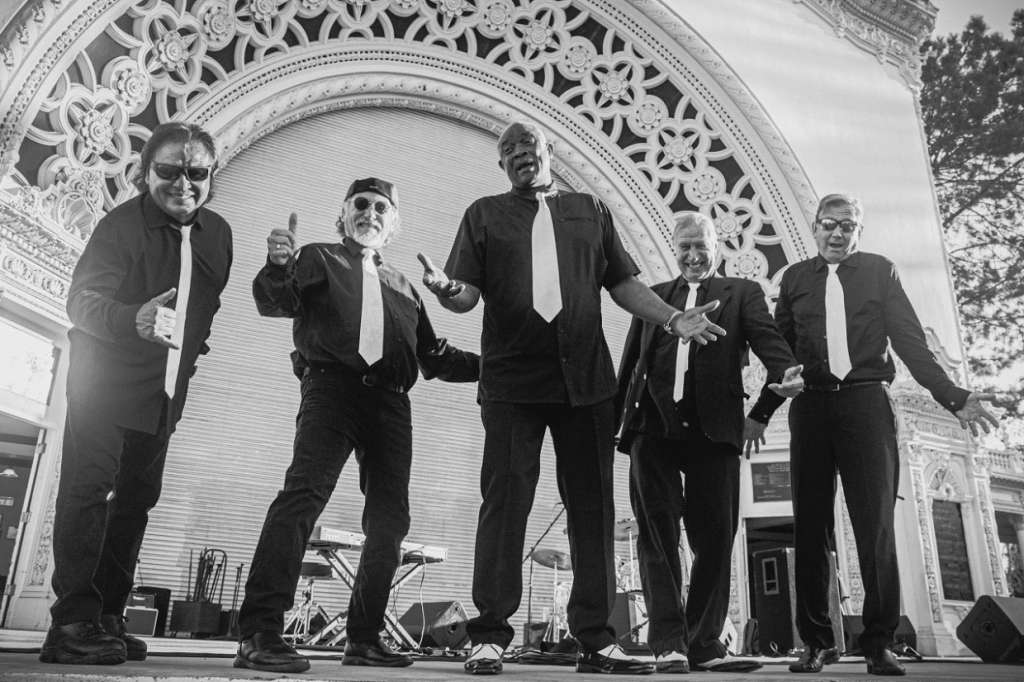
That’s exactly what happened to Michael Stone; you and I know him better as Stoney B. The twist and turns of his musical road, including four years in Army khakis, have taken him from the streets and bars of Chicago through a maze of clubs and juke joints across the entire South. Over a decade of that period he honed his performance and entertainment skills around the Big Easy. Those years of dedication would pay off with an invite to the New Orleans Jazz Festival. It would take Hurricane Katrina to force him to leave and with a short stop in Texas, Stoney B would eventually find his way to the West Coast and San Diego. And that’s where we caught up with him.
Let’s start with your childhood, born in Chicago…when did you realize who your father was and what he did for a living? “First of all.” Stoney says. “My father was the friend of a guy named Earnest Stone and they were good friends. Earnest Stone was with my mother and they broke up. When Earnest left, my father and mother got to be friends and I was the first product of that. My father, Lil Howlin’ Wolf (Jessie Sanders) has five kids by my mother, and I’m the first one. My mother had four girls and when she met my father, I was my mother’s first son. My mother and father broke up when I was eleven years old. We were living in Chicago; in the projects on the Southside of Chicago.”
Did you ever have the chance to meet Howlin’ Wolf? “I didn’t know Chester Burnett, ‘the Howlin’ Wolf’ and it’s in question, whether or not my father was Howlin’ Wolf’s illegitimate son. When Howlin’ Wolf left Mississippi and went to Chicago, my father followed him and the word I got through family is that when my father went to Chicago, Howlin’ Wolf didn’t want him because Wolf had his family with him. You see my father sounded, vocally just like Howlin’ Wolf! Let me tell you, my dad and Howlin’ Wolf had the same kind of vocal chords and it wasn’t a put-on that was my dad’s natural voice. I don’t know if Chester Burnett is my biological grandfather, all I know is they were close. Back in Mississippi they went down to juke joints and my father would follow him when he could.”
“Jimmy Reed, Elmore James, B.B. King and Muddy Waters were my main influences. You even say their names and I lose my mind.” — Stoney B.
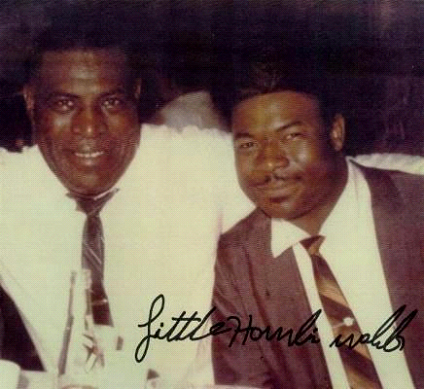
You said your mother and father broke up when you were young? “My father left when I was eleven and it was about two years later when I got into music because of my upstairs neighbor. We lived on the thirteenth floor and my friend Derek, lived on the fourteenth floor. His father was into gospel music and had bought him a bass guitar. I’m sitting at home and I hear this boom, boom, booma, boom coming through the walls and I go upstairs to find out what’s going on. Derek had a bass guitar and I was really infatuated with it. I was thirteen and said let me try it. It was the first musical instrument I had ever tried to play in my life. I would go up to his house everyday…let me play on that bass. After a couple of months, Derek’s dad said let me buy Derek a guitar and let Michael Stone play the bass and that’s what he did. One thing led to another and we learned to play by ear. Everything that Derek learned, I learned. We practiced it. The first song I learned to play was ‘Get Ready’ by the Temptations. You couldn’t tell me shit! I knew how to play that!” (laughing)
Any special memories stand out from that first band? “When Derek and I were learning about music, Derek on guitar and me on bass and my next door neighbor, Gregory Hunter turned out to be our drummer. We were called the 4947 Laundry Room Band. We were kids, 14 or 15 years old and our parents loved that we were interested in music but nobody wanted us in their house.” (laughing) “You all go on down to the laundry room in the middle of the building where the elevators were. And later on my brother, Larry started singing and he had a fine voice. We entered a music contest at the Regal Theater in Chicago and one of our competitors was the Jackson 5. Michael Jackson sang ‘Who’s Lovin’ You’ and boy the women just went crazy. Joe Jackson really pressured them, they had to dress, they had steps, they had the music lined up and they were professional. We were amateurs. I mean, they just came and blew everybody else away…three times in a row. During that time we were known as the Rayshons and we had these little purple and red outfits that Derek’s father had gotten for us. I remember one night when Jermaine Jackson showed up and something was wrong with his amp and he borrowed mine. At that time I had no idea that these guys out of Indiana would go on to be world famous.”
Did your father ever take you to meet some of his musical friends? “I remember the first time my dad took me to see B.B. King at the Burning Spear club on State Street in Chicago. He got me in because everyone knew he was Lil’ Howlin’ Wolf. He started taking me out to Silvio’s and Theresa’s and people got to know me before they knew I even played music.”
Your father lived a good portion of his life in Memphis? “He was still doing shows but he had touches of Alzheimer’s and my dad would talk to anybody, he was friendly like that and everybody knew him. At his funeral, all of the kids one-by-one would get up say something and thank people for coming. I loved my dad and that was the first time I admitted to myself that I wanted to be just like him. I never said that before, I’m looking at him in his casket; the music, the personality and the character, everything that he was…was inside of me.”
He played with Jimmy Reed, Little Junior Parker…“Koko Taylor, the list is endless. Billy Branch, Sugar Blue, everybody in Chicago.”
It’s little wonder why your sound is so diverse. You play Delta and Chicago style blues, but there are traces of R&B, Soul and even Gospel in your current sets. “It was fed into my ears and remember I’ve never had a music lesson in my life. Blues and Gospel music has a feeling to it. It’s an emotional real thing. You either feel it or you don’t. My favorite number one Gospel group is the Mighty Clouds of Joy. I used to go right across the street to the DuSable Auditorium when I was living in the projects; the DuSable High School was directly across the street. And on Sundays they had the Gospel show and at the time I think it was $1.25 to get in. And I would go listen to the Gospel music, sometimes they would have the Mighty Clouds of Joy, the Jackson Southernaires and all these groups traveling out of Memphis and Mississippi.”
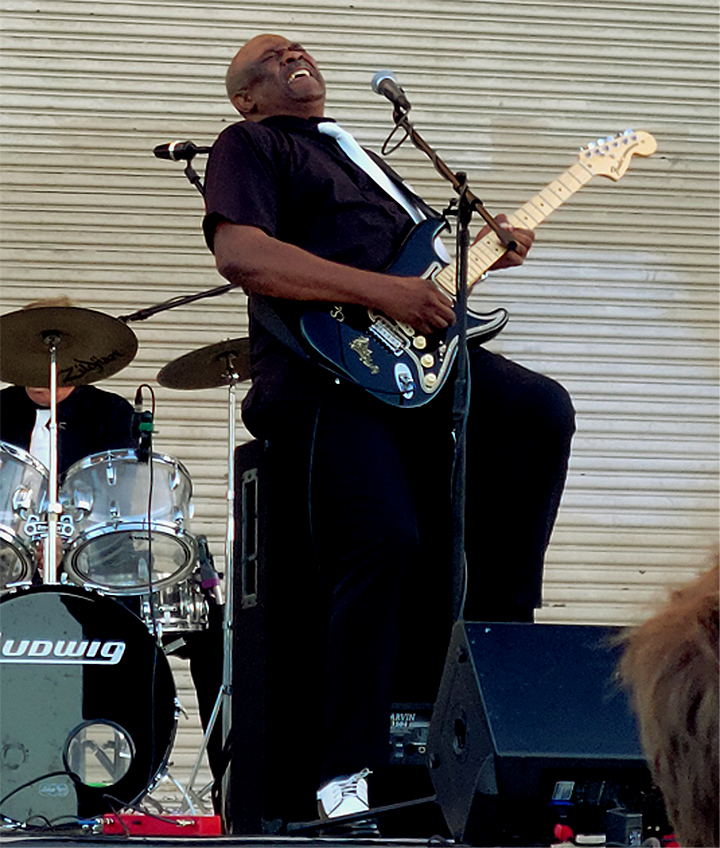
Let’s talk about influences outside of the family. “Jimmy Reed, Elmore James, B.B. King and Muddy Waters were my main influences. You even say their names and I lose my mind. They got that beat and the music goes right along with it. You don’t even know your feet are moving. The blues will grab you.” (laughing) “The last two times B.B. came out to San Diego, I got to open for him at Humphrey’s main stage.”
Had you met him before? “When I was living in Atlanta, B.B. was playing somewhere downtown and I was playing at a blues club called Blind Willie’s in Virginia Highlands. I went to the show and when it was over and everybody was leaving, I walked up toward the stage and the security guy was there. I said look here my man can I go back and see B.B. and he said I can’t let anybody back. I went in my wallet and got one of my business cards and put a twenty dollar bill with it. Do me a favor and just tell B.B. Little Wolf’s son is here to see him. He said stay right there and he went in the back. In two minutes he came back and said follow me. I went in the dressing room and B.B. was in there with a couple of women and when I came in he said, ‘Who is your Daddy?’ I said Lil’ Howlin’ Wolf. He said, ‘Oh man!’ And another thing I was told to say hi to you from somebody in Leland, Mississippi. And when I said Leland, Mississippi B.B. sat straight up and asked, ‘Who said to say hi?’ I said, ‘Lil Bill.’ And he clapped his hands and smiled. (Alex ‘Lil’ Bill’ Wallace) taught B.B. how to play. Lil’ Bill was a used car salesman in Leland, Mississippi and when I was living in the Delta area I knew him; I got to play in the Mississippi Delta Blues Festival twice.”
Music has been such a big part of your life, how did your military service affect that? “I played bass from the time I was thirteen until I was twenty and then I went into the Army. In the Army I bought a guitar. I took my second military pay check and bought a Fender Stratocaster guitar. I taught my little brother Lonnie how to play the bass. When I came out of the Army, Lonnie was better on the bass than I was. I sat on the edge of my bed trying to figure out what to do with them bottom two strings.” (laughing) “The bass has four strings and a guitar has six. No amplifier but I could hear it and put things together, little by little and when I got out of the Army after four years, I went back to Chicago with a guitar and they were laughing at me…until they started listening to me. All of the blues music my dad influenced me with coming up, stayed with me.”
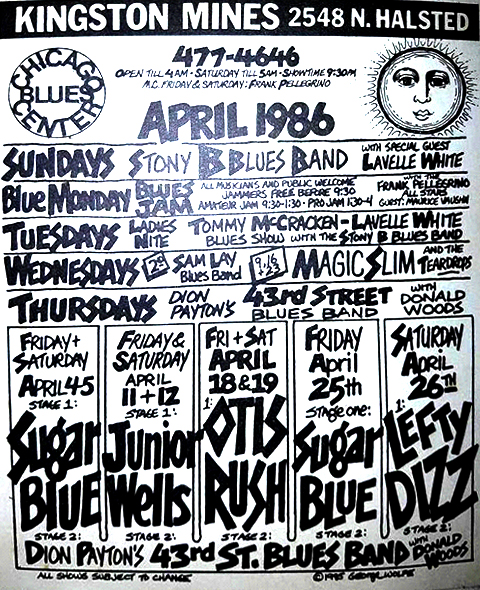
“I’ve been on the stage since I was fifteen years old, but I didn’t actually start singing and fronting a band until after I came out of the Army. When I was a bass player in Chicago, I wasn’t singing I was just playing bass. That’s why they were laughing at me when I came out of the Army because I got a guitar and I’m singing. Then when people came out to see…just who the hell is Stoney B blues? One year after I got out of the Army, I formed the first Stoney B blues band. We played from 1979 to 1986. At the same time, I was playing behind so many musicians in Chicago, it wasn’t even funny. I could sing, open up the show, play guitar, and MC. I was with Queen Sylvia Embry. She was a bass player out of the church and she could sing like an angel. Johnny ‘Guitar’ Embry was her husband and they broke up and got back together, broke up and got back together. One of the bands was Johnny ‘Guitar’ Embry and the Blues Kings and Sylvia saw me playing with him one time. Then when she found out I could play bass and guitar…AND sing, she pulled me aside. So, I was playing with Queen Sylvia and Johnny’s Blues Kings and some months I only had four days off. I was playing music every damn night. My own band played every Monday at Lee’s Unleaded Blues with Buddy Scott and the Rib Tips. He started me off at the club’s Blue Monday party.”
It would be a fan who recorded one of those ‘party nights’ that Stoney says, turned him around. “I did not like what I heard because I was drinkin’ and smokin’ weed. I thought I was feeling my own, like King Kong higher than a MF’er. My singing wasn’t clear, my guitar playing was sloppy. So, I quit! No drinking and performing.”
Did you play around Chicago with your dad? “I didn’t play with my dad much. All together, I maybe performed with my dad just three times. My dad had his own band and they were all seasoned musicians. Musically, my father was my biggest influence because he took me from the beginning until he passed away. I looked up to my dad and admired him.”
Some of those Chicago clubs are still considered legendary. “Kingston Mines, B.L.U.E.S. Yeah, I played at Wise Fools, Biddy Mulligan’s…” Did you play at Silvio’s? “No, but my dad did, my dad played Silvio’s a lot. And there was Theresa’s. Junior Wells gave me a harp one time. It was a C harp and I’ll never forget it. And I tried to play it and it made my lips sore and I never put another harmonica to my mouth again. And Junior Wells used to call me, ‘Lil’ MF’er!’ (laughing) “Junior would walk around saying, ‘Where’s that Lil’ MF’er at?’ (laughing) “I admired Junior Wells so much. First of all, he was one of the sharpest dressers and he’d always sit at the end of the bar, by himself. He got to liking me because I respected him. He was so much older than me. Junior Wells and Buddy Guy knew my dad very well.”
You had a chance to work with Son Thomas and Roosevelt ‘Booba’ Barnes? “Son Thomas I met and played with and I had the chance to talk with him a little bit, but Son Thomas was one of the older guys. And another guy named T-Model Ford…and Roosevelt ‘Booba’ Barnes. When I left Chicago in 1986, I went to Greenville, Mississippi. I was living in a little motel right outside of town and a cab driver told me, I see you’ve got a guitar. You know they play the blues down on Nelson Street. I waited till Friday night and the cabbie took me down to Nelson Street to Roosevelt ‘Booba’ Barnes’ Playboy Club. I walked in carrying a guitar and Booba had a bass player, a drummer and some other guy who could play guitar a little bit and Booba said, ‘I’m gonna’ get you to come up and play a couple of songs.’ You know, to see if I was worth a damn. So I got up and played and people liked it. Booba asked me, ‘what’s your story?’ I said look man, I just got in town I’m stayin’ in a hotel out by the highway and I’ve got no place to stay, no money and no job. He said, ‘Well man, I could use you in my band.’ He was living in the back of the club, so I was sleeping on the pool table!” (laughing) “I was playing with Booba for a couple of months and sleeping on the pool table and I’d help him at night when the club closed, cleaning up and emptying the trash, mopping the floor. Right down the street was a place called the ‘Flowing Fountain’ and that was Little Milton’s hangout. The guy who owned the ‘Flowing Fountain’ was named Perry Payton and he was a mortician, he had his own funeral home business.”
Your music and most blues is based on storytelling…are you a storyteller? “When my dad was singing and playing the blues in the house, he’d be singing and playing like it was real. Even though it was nothing but a song, I was young and impressionable and I’m learning and you can have me believing anything if you know how to do it. And the blues, every song that I sing, when I sing it, I put myself into that song. I’m going to try and make you believe. Whatever I sing, I want you to believe me. You can feel me better if you believe me and I like that connection. That’s why I love playing for the senior citizens over at St. Paul’s…they’re not drinking, they’re not dancing, they’re sitting there listening. They tell me, ‘Oh, I was so into what you were doing, I listened to every syllable that came out of your mouth; I listened to you!’ No distractions. You know that meant a lot to me.”
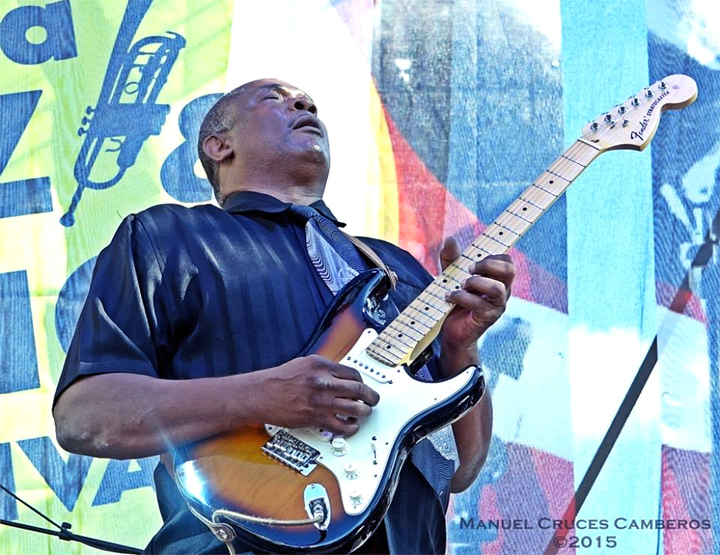
The early 90s you find your way to New Orleans and you meet a blues guy by the name of Bryan Lee. “Bryan Lee! That’s my boy! Blind Bryan Lee, man he was playing the Old Absinthe House on Bourbon Street. One of the first nights I got there, I was walking down the street and I heard the blues and I walked up and looked in this place and Bryan Lee was up there playing. I didn’t know at the time he was blind. About six or seven month later I was opening up for Bryan Lee at the Old Absinthe Bar. When I first got to New Orleans I was a street musician. I’d been ripped off and didn’t have a guitar, but someone gave me one but it didn’t have any strings. I took that guitar and right off of Jackson Square on St. Peters Street, I got up on the wall and with no strings on this guitar I put my tip box out and told people I can play any song you name. How can they tell if I’m right or wrong, I didn’t have any strings on the damn thing? It was like I was a comedy act out there.”
Stoney demonstrates and sings ‘My baby left me’ and strums an invisible guitar without strings. ‘I got the blues, pretty baby.’ “And people just stopped they’d never seen anything like that before. Even other musicians were wondering what the hell is going on? Here’s this black man down there with a guitar and no strings on it and there’s a damn crowd around him and a half a box of money. What is the world coming to?” (laughing)
After establishing yourself in New Orleans what were some of the clubs you played in? “The first club I performed in on Bourbon Street was called, The Funky Pirate. I also played the Famous Door, the R&B Club, Tropical Isle…”
I’m amazed at the number of clubs and bars you’ve played all over the South, From Blind Willie’s in Atlanta to the Mean Woman’s Grill in Lubbock. “Man, I done played so many of them Chitlin’ Circuit juke joints and I’m talking about the real juke joints, down in Mississippi, I played Clancy’s in South Carolina, Spartanburg and people were comin’ up in there, man. People were comin’ from other clubs to come to Clancy’s to see this black guy playing the blues. It was full on the inside and people lined up outside with people looking in the windows.”
You also played the Jazz Fest in 2008. “Yeah, I can’t remember the year but me and Grandpa played there.”
Talk a little about Grandpa Elliott (Elliott Small). “Grandpa was the leader of an a cappella group in New Orleans and every now and then would pass me when I was playing in Jackson Square. I had Chili Groove on the tub bass, you know the No.#2 foot tub? He had a string in the middle of it and connected to a pole. He would hit that string and pull on it and change the tone. When we started playing together Grandpa and I were with each other almost every day for 12 years and we never once practiced or rehearsed…and every year we played at the Washington Parish fair, we were small stage specialists. There was never a better harmonica player; he was the best in town, period. There was no harmonica player in New Orleans better than Grandpa. Smoky Greenwell was No. #2. The first time Grandpa and I played together all I had to do was tell Grandpa what key the song was in. And he would know which harp to get. When we started playing, I had perfect vision and Grandpa had perfect vision. Slowly, glaucoma took his vision away and Grandpa went blind. Now here I am with glaucoma…man, I went through nine months of depression.”
Stoney B and Grandpa Elliott
You were evacuated out of New Orleans after Hurricane Katrina and eventually made your way out to San Diego. You put together your own blues festival; tell us how the Blues Summit came to be? “The Blues Summit was a gathering of blues musicians, performers and blues lovers. If you like the blues, this was your event. First of all, I wanted it to be free and I wanted it to feature all the blues musicians in this area. The origins are from when I used to run the blues jam at a place called, Hennessey’s Speakeasy at Fourth and Market. And on Monday’s blues musicians had a place to come out and play.”
You’ve been very active with a number of charitable events in Southern California. “My wife is involved with the Blues Society and the Blues in the Schools programs along with the Blues Summer Camps. I got to play in the Blues in the Schools program with Michele Lundeen and Fuzzy Rankins. We’d do presentations explaining to the students what the blues were about and where they came from and how they originated. I was proud to be a part of that because I fit right in. I could speak the language they could understand.”
You’ve also worked with the Doors of Change, a program designed around homeless kids in Southern California. “In Ocean Beach there was a church organization that had us teaching homeless kids how to play music. I was teaching blues to the kids and after they came, I think it was six times, that would gift the kids a guitar. I loved that, man. And I worked with Rachelle Danto. Just a few weeks back I ran into a young person who said, ‘you don’t remember me, but you showed me the Jimmy Reed style.’ When he said the Jimmy Reed style…I knew that was at the church!”
You’re playing a lot, who’s playing with the Stoney B Blues band now? “Paul Carlomagno is my drummer and Joe Torres plays guitar. We have Pat Kelley on keyboards and Karl Dring on harmonica, guitar and bass.”
What’s next for Stoney B Blues? “I’m going in to the woodshed and I might have to disconnect from everything for a few weeks until I get through writing and putting together my next CD. There’s a lot of music that’s original…that’s still in my head. I’ve promoted everything I’ve ever done. I’ve never had a manager or agent; you see growing up in Chicago you couldn’t trust the damn booking agents and managers because they had a bad reputation for ripping people off. I just do it myself.”
You’ve lived a lifetime of blues, do you have a ‘most memorable’ moment or experience? “I was coming off the stage after a performance and a lady about 70ish, came and stood right in front of me. I stopped and put down my guitar and amplifier and she reached out and grabbed my hand and said, ‘I want to tell you something.’ She said, ‘You are my B.B. King!’ I looked at her and didn’t really understand. She said, ‘I don’t have much money, and when B.B. King comes to town I can’t afford to go see him. But I’ve seen you a number of times and I can get that same feeling.’ She said, ‘B.B. is my number one to listen to, and that I was the next best thing.’ The whole time she was holding my hand and she said she just want to tell me that. Then she just turned around and walked away. And for the first time somebody said something to me that I didn’t have an immediate response to. She said it with all sincerity, from the heart. I didn’t have a response; it was like my vocal chords couldn’t hook up, and so I just watched her walk away. And that meant so much to me. I wish I could find that lady and speak with her; it was such an intimate thing.”
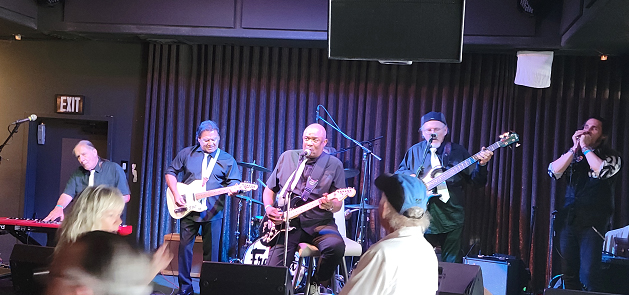
Any last calls, any other stories that led you to where you are now? “Do you know I was the first attendee at Muddy Waters funeral? When Muddy had his funeral in Chicago on South Park, its called King Drive now, I only lived a block and a half from the funeral home. When they opened the door at the funeral home I was standing there, by myself. When they pulled the door open and I went in, Muddy’s casket was already open and in the front. I walked up to it and looked down on Muddy. You know how he used to have his hair processed, they had Muddy looking good. I stood there and said, ‘Muddy, one thing for sure I’m going to keep on playing the blues until I join you.’ And when I was walking out there was a line of people walking in…”
Stoney B is a man of his word. He and his band play regularly in and around Southern California so get out and enjoy the show. Check out his website, StoneyBBlues.com for dates and times near you.
